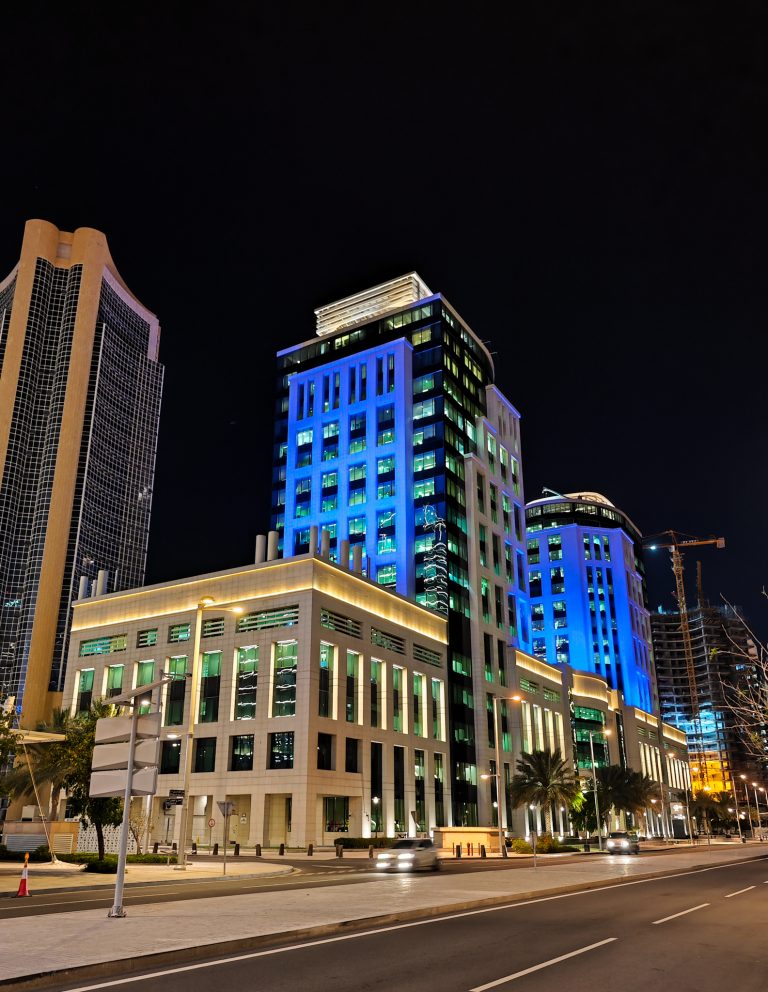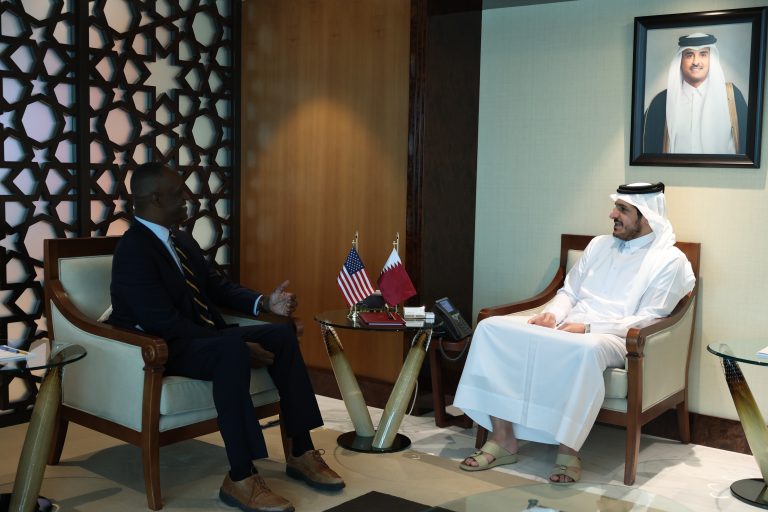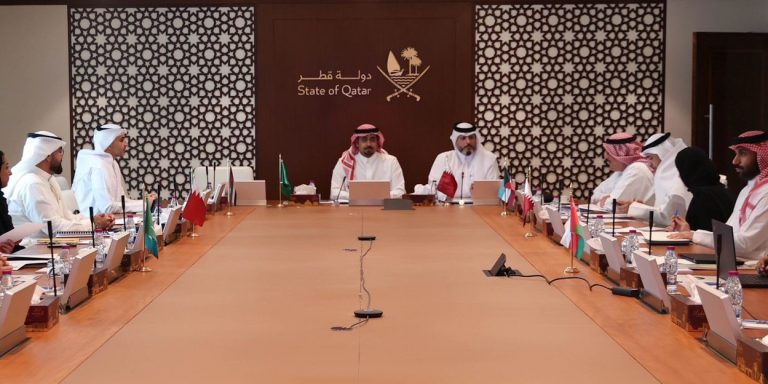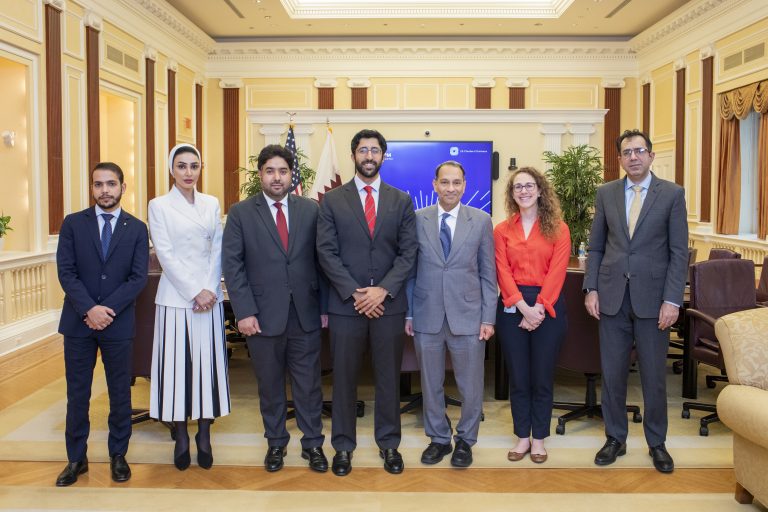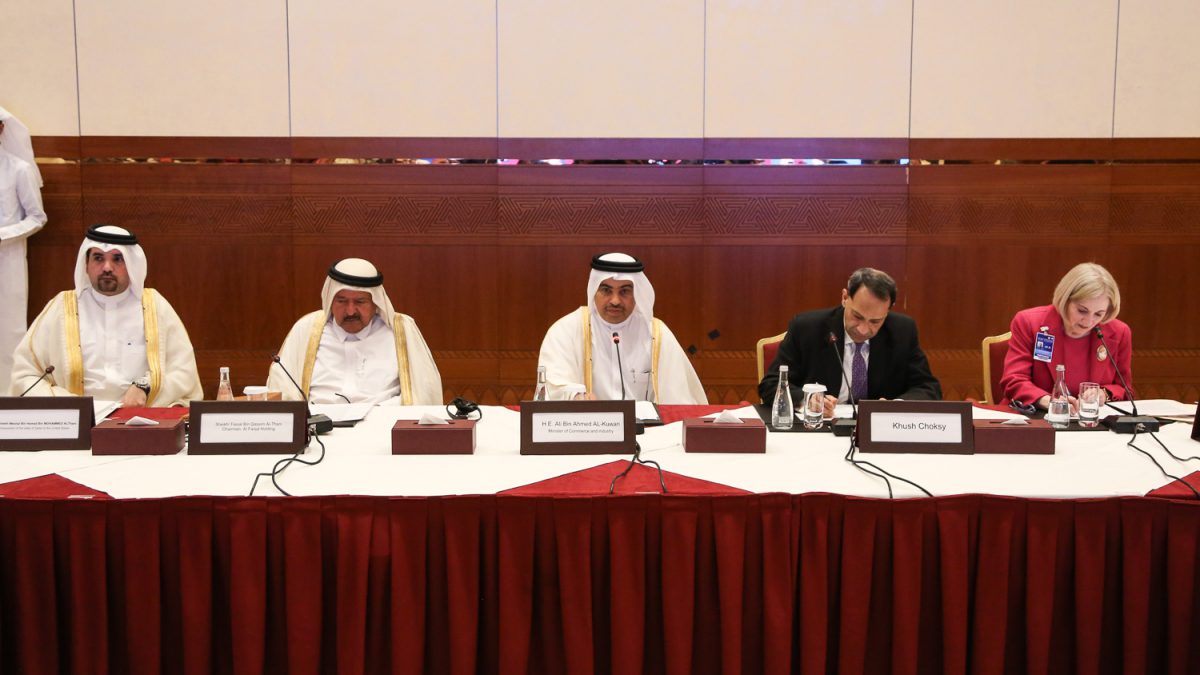
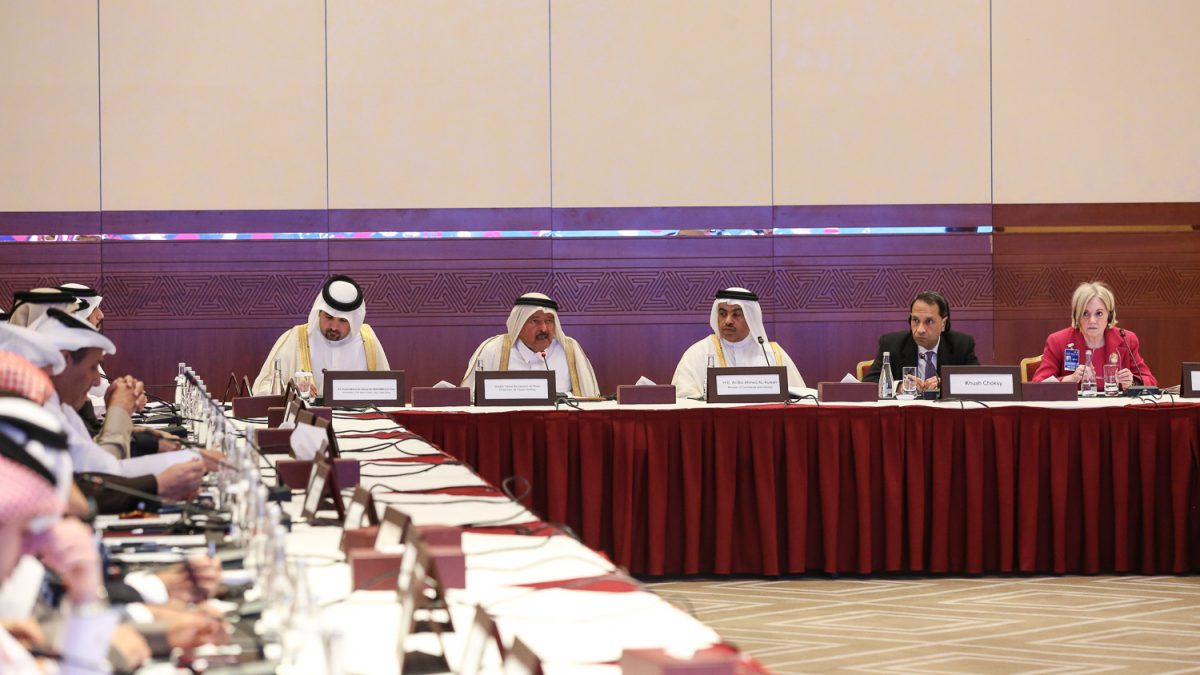
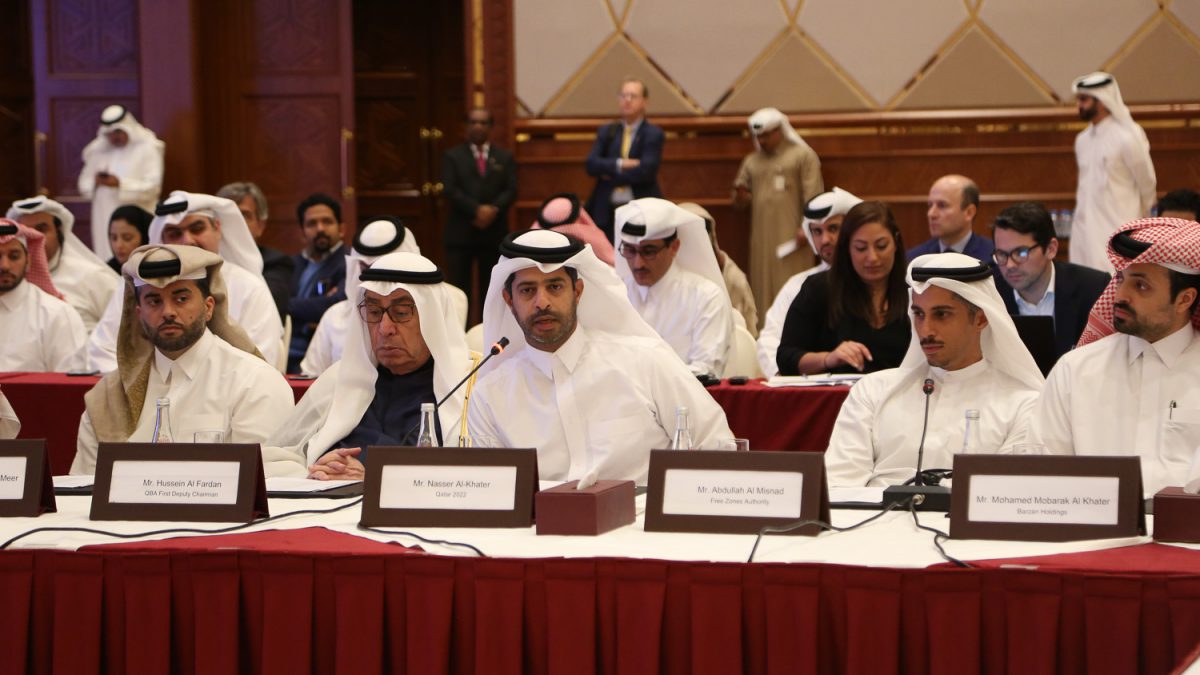
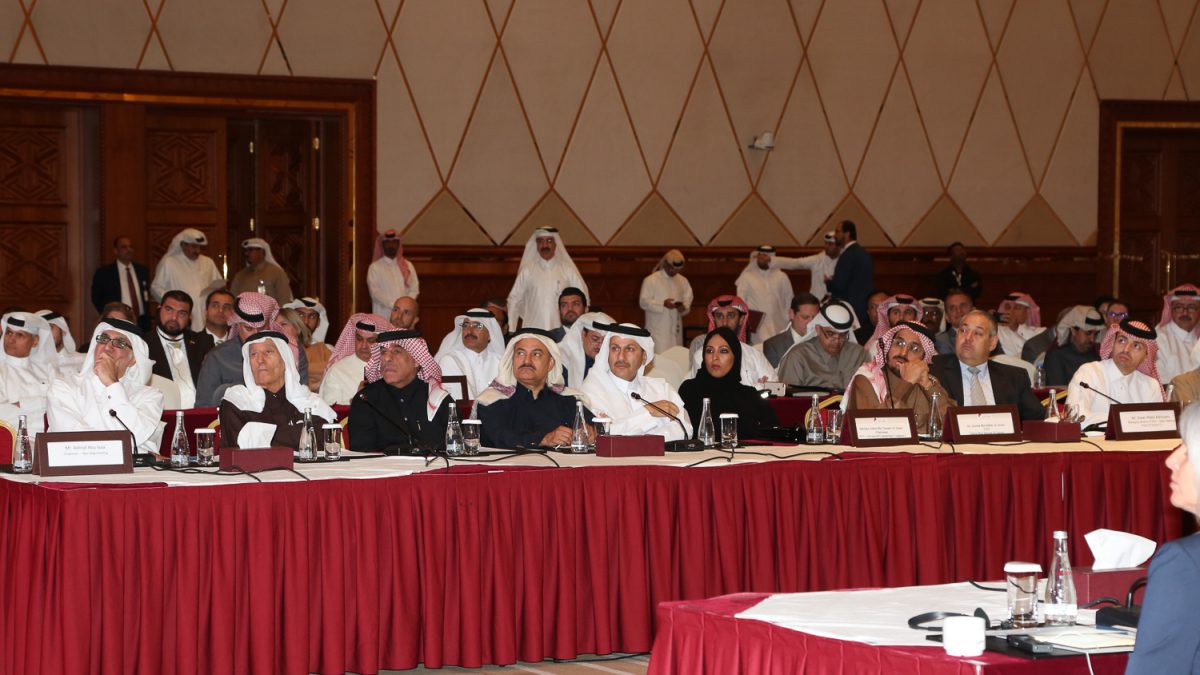
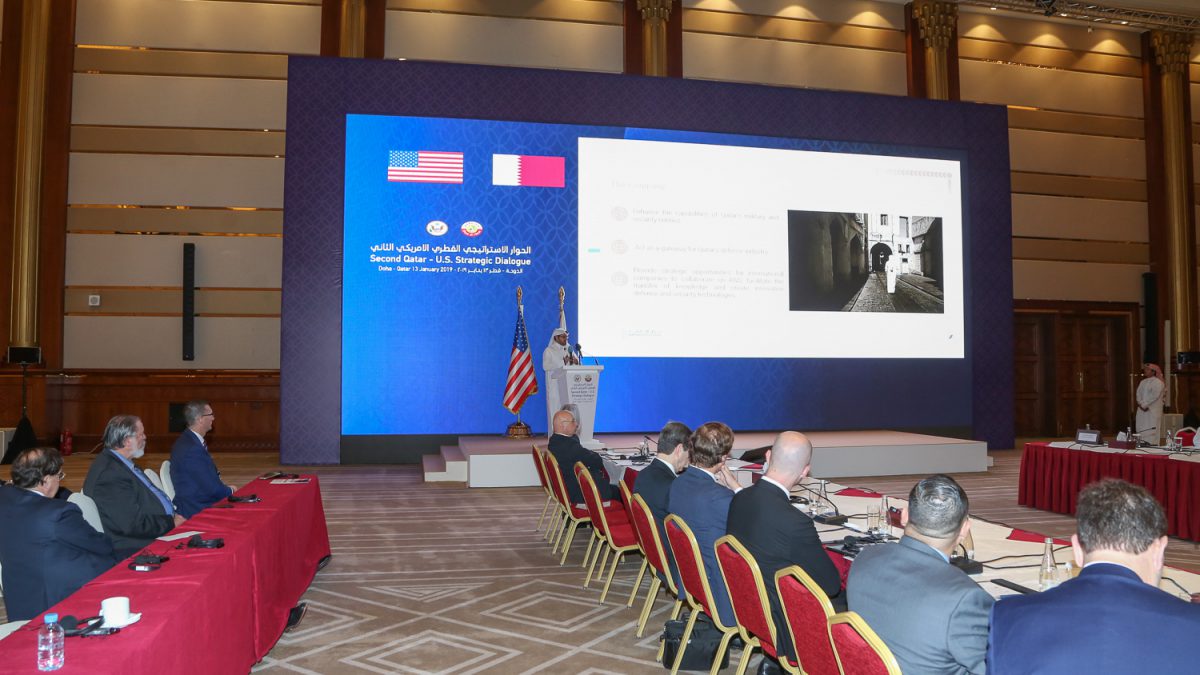
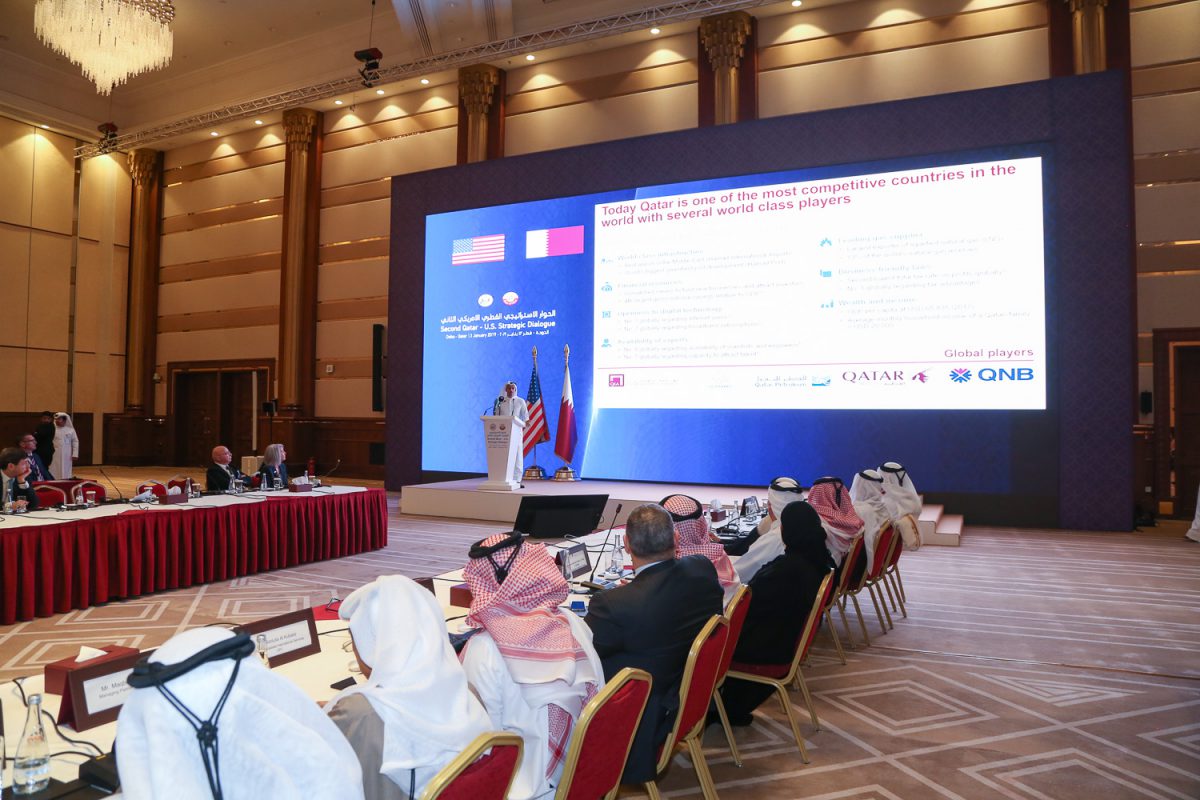
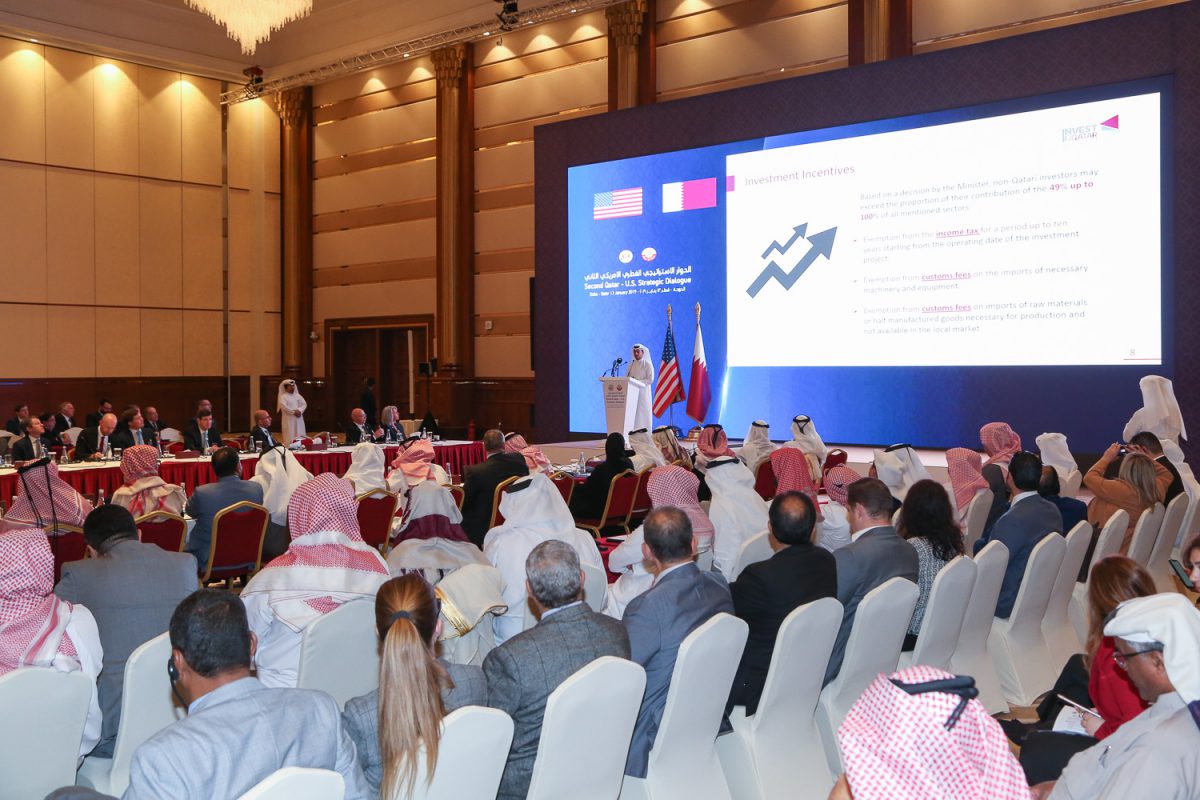
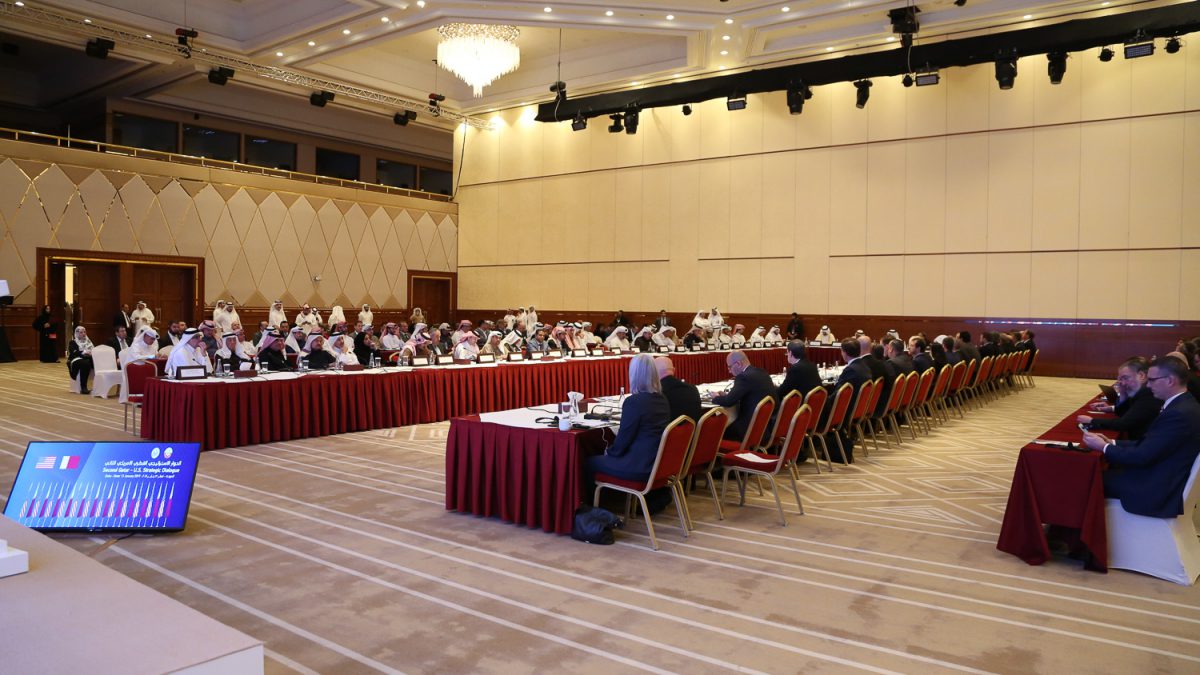
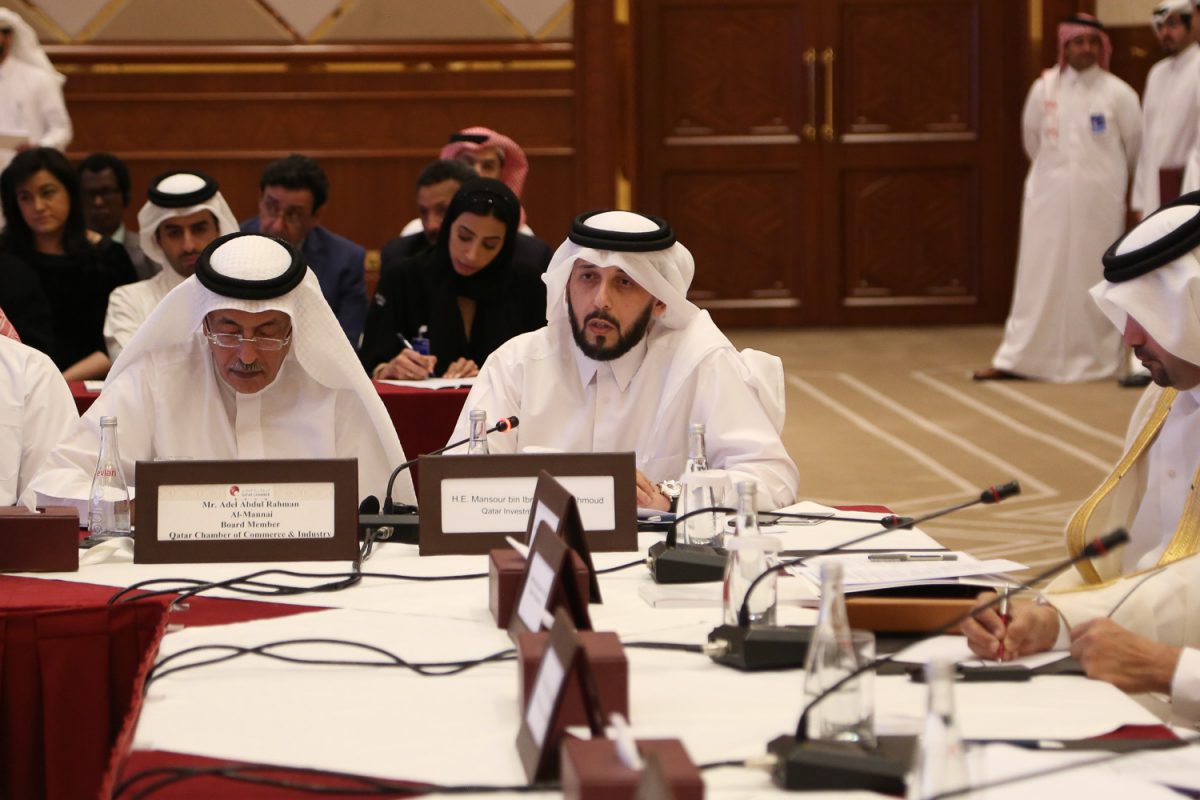
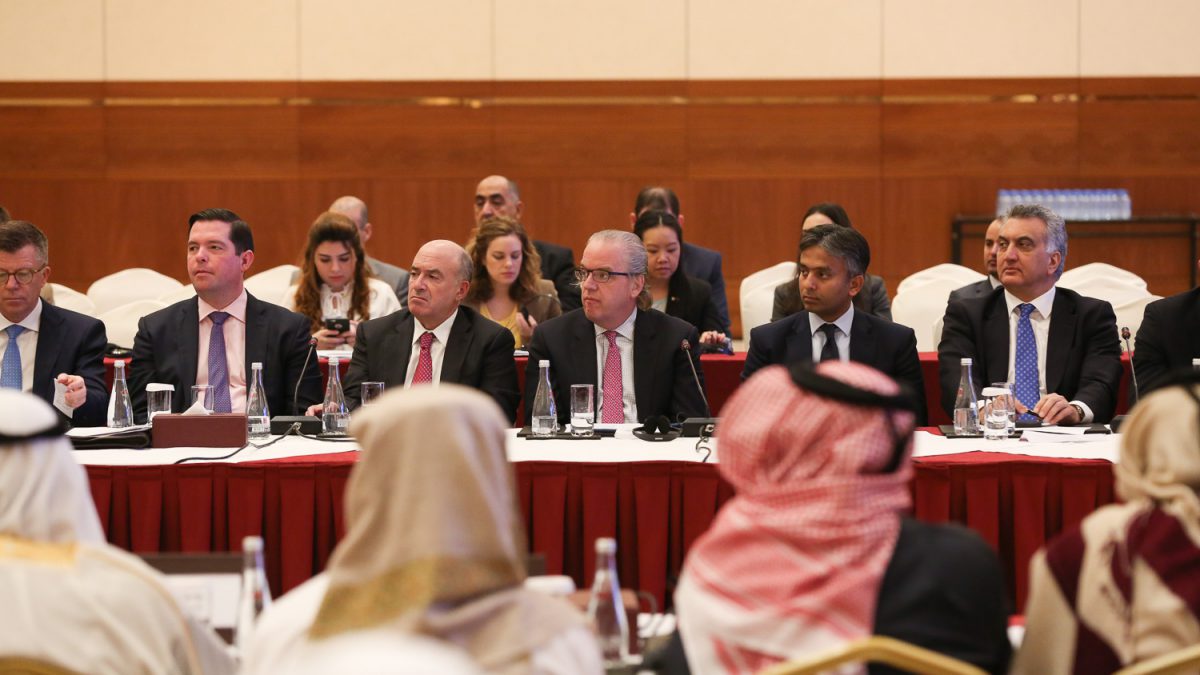
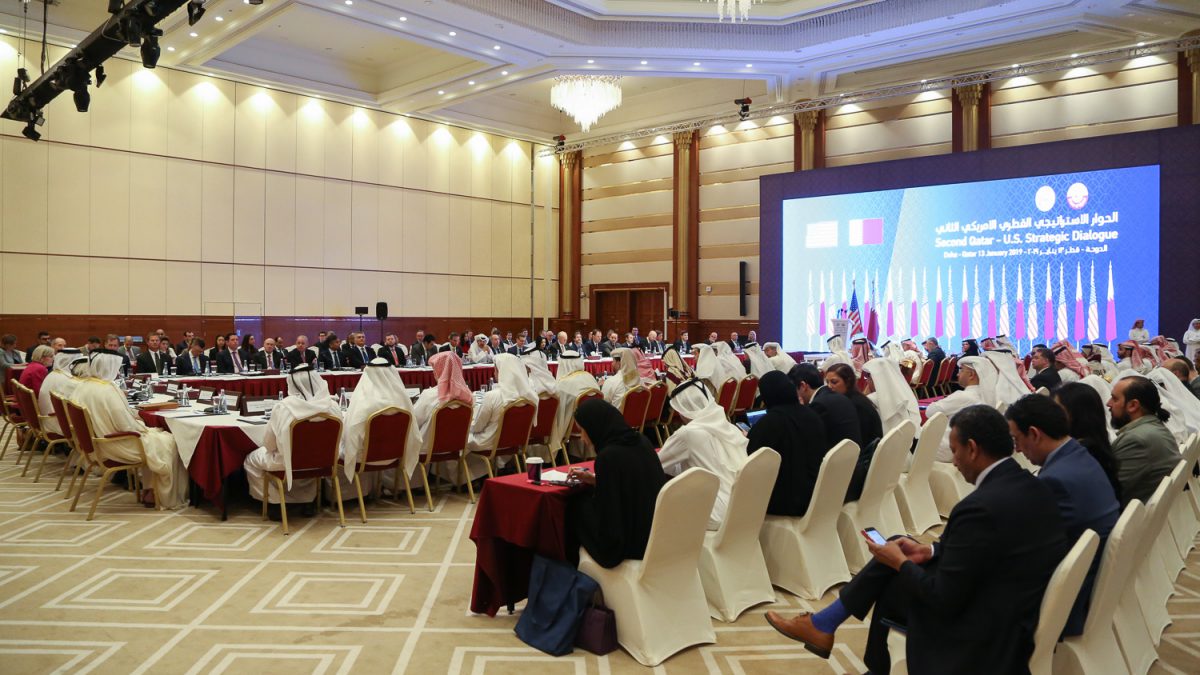
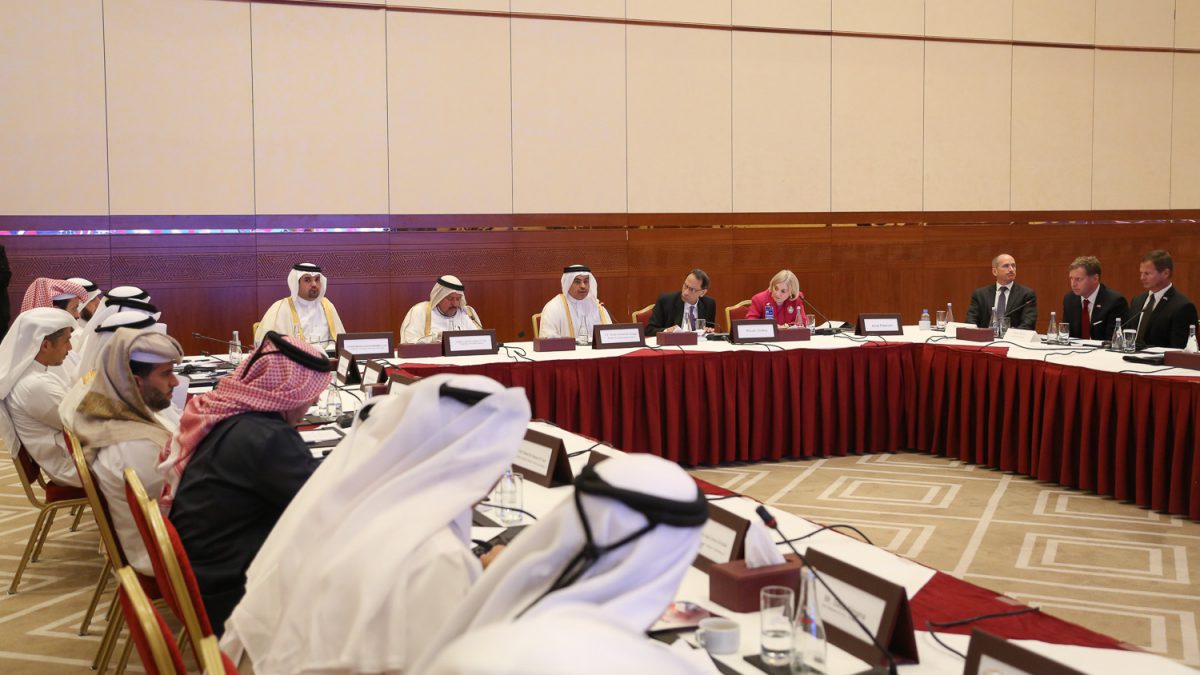
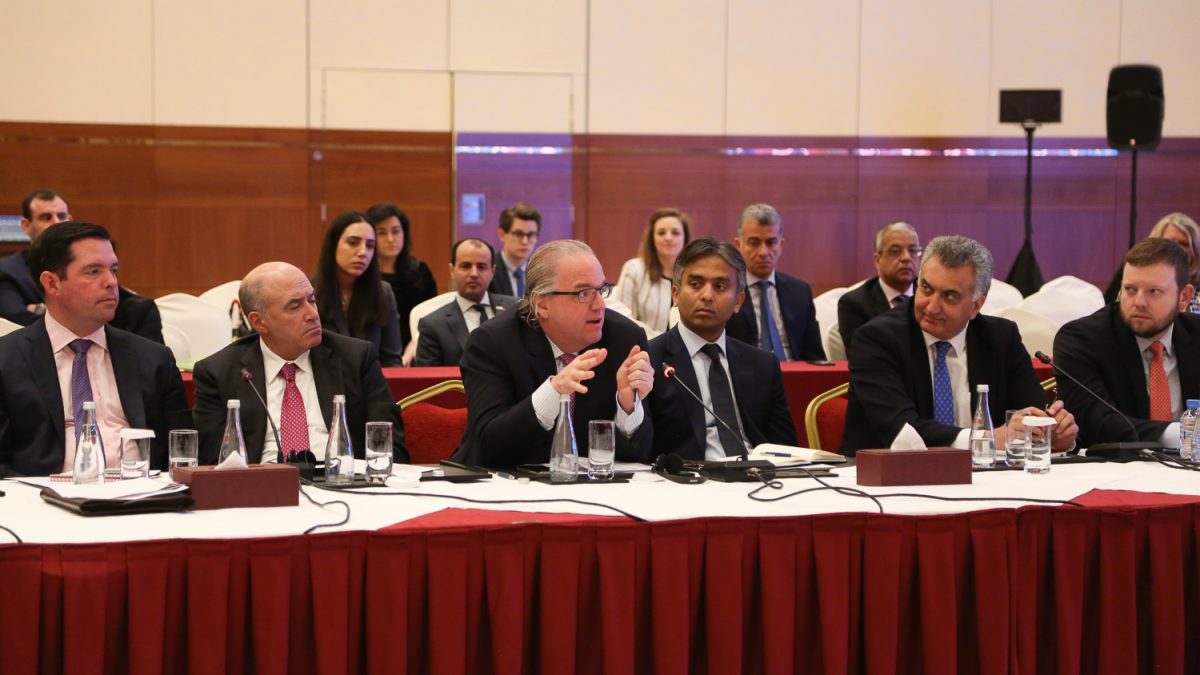
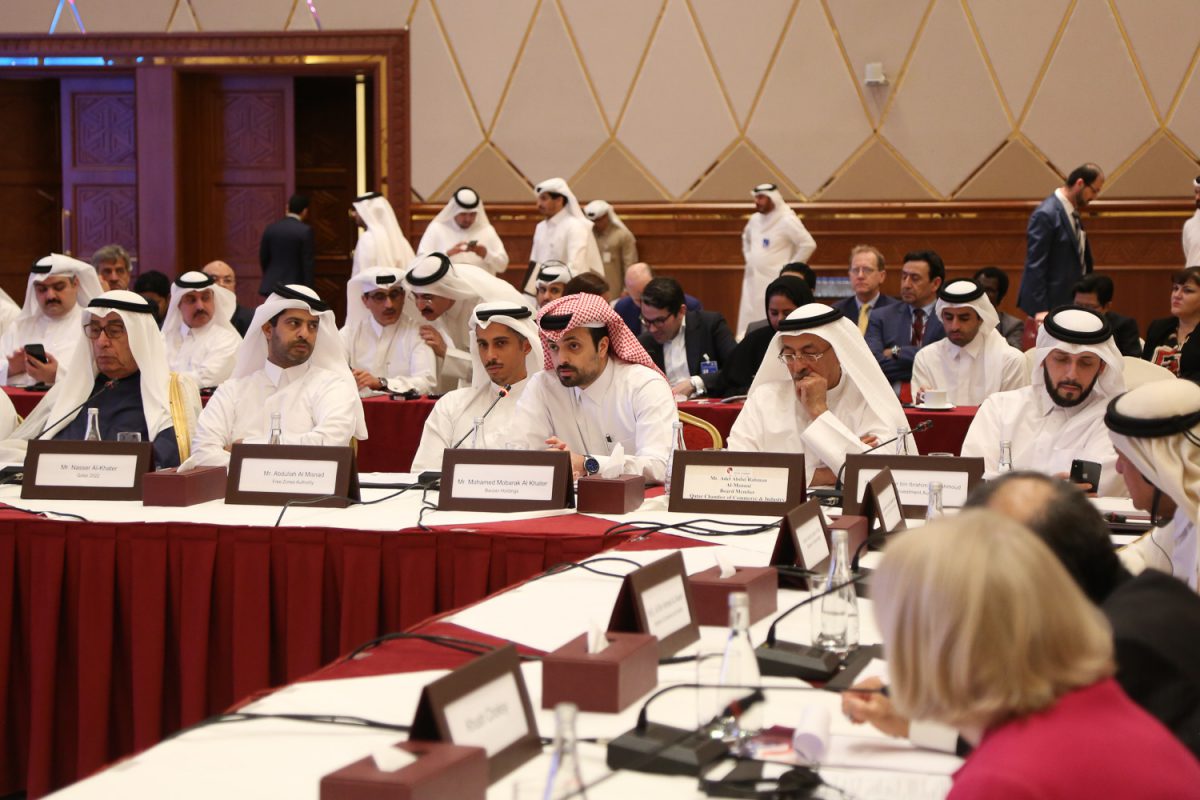
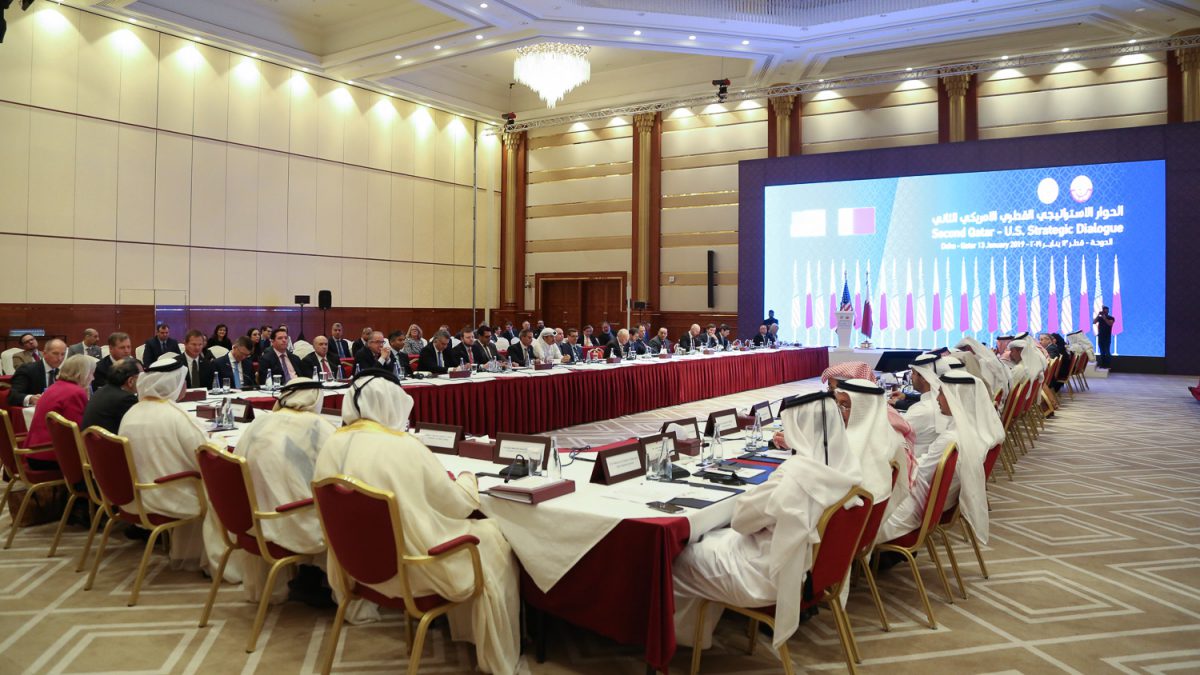
- Qatari-U.S. bilateral trade volume has increased to 6 billion US Dollars, accounting for 6.23 percent of Qatar’s total exchange with its global trading partners.
- The U.S. ranks as the first destination for Qatar’s imports.
- 19.5% of Qatar’s imports came from USA, amounting to 5.15 billion US Dollars.
H.E Mr. Ali bin Ahmed Al Kuwari, Minister of Commerce and Industry, and Mr. Khush Choksy, Senior Vice President, Middle East and Turkey Affairs, U.S. Chamber of Commerce, co-chaired a roundtable on bilateral Qatari-US trade relations. The roundtable was organized within the framework of the second Qatar-US Strategic Dialogue in Doha.
In his opening speech, H.E. Mr. Al Kuwari said the session was designed to drive forward the shared Qatari-US economic agenda by facilitating trade and investment opportunities, and promoting bilateral ties and partnerships.
Qatar and the U.S. are strong business partners, H.E. stressed, noting that the close and mutually beneficial relationship between the two countries stretches back decades.
H.E. said both Qatar and the U.S. are constantly seeking to expand bilateral trade and investment, noting that the signing of the Trade and Investment Framework Agreement (TIFA) in 2004 marked the first milestone in the journey to strengthen bilateral ties.
H.E. also expressed his hope that the latest round of discussions in the context of the second Qatar-U.S. Strategic Dialogue would contribute to bolstering bilateral relations and lay the foundation for a bold new chapter in this ongoing partnership.
According to H.E., the Strategic Dialogue provides an opportunity to make investment plans and build strong economic ties to enable both sides to take full advantage of the range of opportunities available for Qatari and American companies in the fields of industry, health and education in both public and private sectors.
On another note, H.E. highlighted that Qatar’s economic performance has remained robust under the guidance of the country’s wise leadership, thus offering a stable environment for foreign investment.
In spite of regional adversity, following the unjust blockade imposed on Qatar on June 5 2017, the country has proven resilient, H.E. stressed, referring to Qatar’s positive economic indicators.
In 2017, Qatar’s GDP grew 1.6 percent at constant prices, and the World Bank expects that rate to increase by an average of 3% from 2019 to 2020 as the government seeks to further promote foreign investments, H.E. noted.
H.E. added that Qatar’s success is also reflected in the country’s rankings on the Global Competitiveness Report 2018, issued by the World Economic Forum.
Globally, Qatar ranks 1st in terms of low inflation rates, 6th in terms of the low effect of taxes on competition, 8th in terms of venture capital availability, and 9th in terms of financing small and medium enterprises.
H.E. explained that Qatar is also seeking to capitalize on its advanced infrastructure to further bolster foreign trade.
Through Hamad Port, Qatar has established, and continues to expand, direct commercial routes with competitive transit times both to and from a number of strategic hubs around the world, H.E. said, noting that Qatar’s trade connection with various foreign ports has grown as new shipping lines are launched.
H.E. added that Hamad International Airport is also maintaining passenger and cargo traffic at a normal pace to more than 160 destinations worldwide.
Touching on the legislative frameworks developed by the State to stimulate investment, H.E. said Qatar has ratified new laws and regulations and introduced amendments to existing legislations since the previous round of Strategic Dialogue, in a bid to promote both local and international private investments in the Qatari economy.
These amendments include a new law to regulate the investment of non-Qatari capital in economic activity, H.E. said, noting that the law facilitates foreign investors’ access to the Qatari market by providing incentives in terms of land allocation to non-Qatari investors seeking to set up projects, tax and customs exemptions, and enabling the free transfer of investments to and from Qatar.
The new law also aims at promoting economic development, attracting foreign investment in all economic and commercial activities and bolstering the country’s confidence and investment security index, H.E. added.
Elaborating on the development of Qatari-US bilateral ties over the last ten years, H.E. said that bilateral trade volume has more than doubled, reaching 6 billion US Dollars in the period from January to October 2018, accounting for 6.23 percent of Qatar’s total trade exchange with its trading partners.
In 2018, the U.S. ranked as the first destination for Qatar’s imports, H.E. said, noting that 19.5% of Qatar’s imports came from the USA, amounting to the value of 5.15 billion US Dollars.
H.E. added that 117 fully owned U.S. companies and 565 joint Qatari-U.S. firms are operating in the engineering, consulting, contracting, IT, commerce and services sectors in Qatar, while 55 U.S. companies are licensed under the umbrella of the Qatar Financial Centre.
H.E. explained that the private sector in both countries is well positioned to tap into a multitude of existing promising investment opportunities, including infrastructure projects related to the 2022 FIFA World Cup.
Other investment opportunities exist in Qatar’s tourism sector, H.E. said, referring to plans to attract 5.6 million visitors annually by 2023 – double the number of visitors which the country welcomed in 2016. H.E. also highlighted large-scale projects in food security, education and health services.
This positions Qatar as an encouraging and attractive environment for investors, H.E. said, voicing confidence that U.S. companies will find new and willing partners keen on establishing smart long-term business relationships.
This roundtable is a showcase to learn about the full spectrum of business and investment opportunities available in Qatar, and an important space for open conversation with key U.S. businesses, H.E. stressed.
H.E. concluded his remarks by reiterating Qatar’s commitment to its strengthened bilateral relations and economic strategic partnership with the U.S. based on common interests and mutual understanding.
For his part, Mr. Khush Choksy, Senior Vice President, Middle East and Turkey Affairs, U.S. Chamber of Commerce, elaborated on the importance of promoting bilateral relations, while highlighting both countries’ keenness on strengthening existing partnerships to achieve common interests and serve the development objectives of both Qatar and the US.
Qatar is one of the leading trading and investment partners of the U.S., Mr. Chocksy added, noting that recent meetings and events provide an important platform to discuss trade and investment opportunities and mechanisms to enhance cooperation between the two countries in various fields.
The roundtable was attended by H.E. Sheikh Faisal bin Qassim Al Thani – Chairman of the Qatari Businessman association, H.E. Sheikh Meshal Bin Hamad Al-Thani, Ambassador of the State of Qatar to the United States, and H.E. Mr. Mansoor Bin Ebrahim Al-Mahmoud, CEO of Qatar Investment Authority, along with senior officials from the Supreme Committee for Delivery & Legacy, Qatar Airways, Free Zones Authority and Barzan Holdings, as well as other Qatari executives, investors and businessmen.
The U.S. delegation included Mr. Khush Choksy, Senior Vice President, Middle East and Turkey Affairs, U.S. Chamber of Commerce, Ambassador Anne Patterson, President of the US-Qatar Business Council, along with senior executives from major US companies.
During the roundtable, the Ministry of Commerce and Industry delivered a presentation, highlighting the key features of Qatar’s attractive investment environment as well as the incentives and legislations adopted by the State to support entrepreneurship and the private sector, which will increase the flow foreign direct investment and attract additional foreign companies to the Qatari market.
Participants were also briefed on projects being undertaken by the Qatar Investment Authority, the Free Zones Authority and Barzan Holdings. Discussions touched on 2022 FIFA World Cup-related projects and investment opportunities that U.S companies can tap into, as well as the expansion plans of Hamad International Airport.
Participants also discussed the opportunities of joint cooperation between Qatar and the U.S in various fields, including trade and investment.




